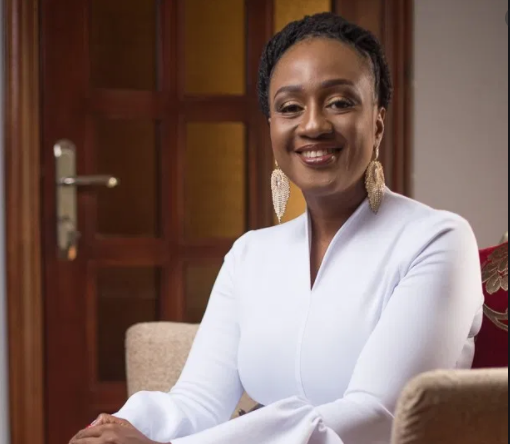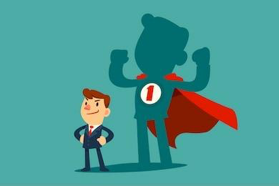
A crucial part of effective communication is confidence. The effect of a message can impact differently because of the energy that it carries; the way and manner in which it is said. Confidence is an expression of how we feel inside about ourselves and on a daily basis, the way we do things and say things communicates to people what we believe about ourselves. In today’s insights, we discuss leadership confidence and why it is important for the leader and for his/her followers.
I have witnessed in many instances why a confident leader is crucial to the success of any team. People behave on the impulse of fear but most things in life require a deep level of understanding and critical thinking. And to execute effectively solutions to challenges, you need confidence. There was a very smart young lady I sat in the same class with back in my high school. She always knew the right answers to the teacher’s questions but would never raise her hands to give out the answer. What she lacked was a deep sense of self-confidence, which was a barrier to her acting boldly on what she already knew.
“Self-confidence has two aspects: general self-confidence, which is a stable personality trait that develops in early childhood, and specific self-confidence, which is a changing mental and emotional state associated with the specific task or situation at-hand. We develop both types of self-confidence through automatic, mostly unconscious, internal dialogues whereby we make judgements about ourselves based on our experiences and others’ feedback. While both types of self-confidence profoundly affect our thoughts, emotions and behaviour, our level of general self-confidence is important primarily in new and unusual circumstances while specific self-confidence is pertinent to our every-day performance. High levels of both types are essential for effective leadership and enable the leader to influence his collaborators, or followers, to build task-specific self-confidences that can strengthen their job performance.” (Leadership Today: Practices for Personal and Professional Performance, Joan Marques and Satinder Dhiman, eds., Springer, 2017)
We can imagine what a display of confidence is and what it is not. In a definition, Francisco Dao, a lifelong entrepreneur, says: “Self-confidence is the fundamental basis from which leadership grows. Trying to teach leadership without first building confidence is like building a house on a foundation of sand. It may have a nice coat of paint, but it is ultimately shaky at best. Here is what Tony Robbins says about confidence: “Being confident is nothing more than a belief in yourself. It is the feeling of certainty that you can accomplish whatever you set your mind to. Confidence comes from within, and you can find ways of being more confident at any time.”
So, we have established that confidence should come from within, and for every leader and aspiring leader, confidence should be one of the foundations your leadership is built on. I will explain what it means for confidence to come from within. When I was much younger, I felt very insecure about my body structure. I was somewhat bigger and taller than my peers and that disturbed me. I was also very concerned about the way I looked. But I quickly realized as I grew older and had more control over what I wore that every time I put on an attire I really liked, I felt more “confident”. I would speak up more easily and very often. But on days where I did not feel nice or beautiful in my clothes, my spirit was dampened. Unfortunately, I was wrong for a very long time. I did not have confidence. My confidence was tied to the way I looked, which made it very a fickle and easy feeling to lose.
In Joan Marques and Satinder Dhiman’s book, Leadership Today, the nature of self-confidence is aptly explained. Self-confidence for most people is based on an individual’s level of certainty about his or her ability to handle things. Self-confidence is formed through complex internal processes of judgement and self-persuasion, whereby we attach meaning to our personal experiences – particularly our successes and failures in past performances – and comprehend others’ reactions to us. Thus, it involves sense-making, whereby we learn to understand ourselves and create expectations of our future performances. Some psychologists conceptualize our resulting beliefs as a continuum with high self-confidence at one end and uncertainty at the other.
True self-confidence should not be tied to ones current circumstances or to image because image is not a stable corner stone to build anything on. Confidence is intentional and self-taught. Building confidence is an acknowledgement of what we think we are not and a deep immersion of our thoughts into everything we want to be, followed by acting on our self-belief.

There are several aspects of leadership that can be taught; better communication skills, analytical and critical thinking skills, team management, etc. But confidence cannot be taught. You can however be guided into finding your confidence. Peter Stark, an executive coach expresses that without a leader first believing in himself or herself, true leadership will exist only in title. In essence, related to leadership confidence, the first sale must be to yourself. Meaning, that if you do not believe that you have the personal confidence to lead, gaining followers will be tough, or impossible.
Confidence is important beyond the workplace, too. Even outside a leadership role, confidence is vital. As team players, we need confidence to build networks and communicate our ideas effectively to others. In our love lives, confidence plays a role in whether our partners find us attractive. Confidence is a life necessity not required specially of a specific group but of anyone who wishes to effectively build relationships and seek out new opportunities that will foster personal growth.
The reason people believe in things and in people is usually because they have seen those people do what they say they can do. So to have a belief in oneself and to nurture deep confidence, you should be able to act and get results. If you walk into an exam room prepared, it is easy to feel confident that you can pass the paper. High Performance Coach, Brendon Burchard says that soul-driven confidence is really the belief in your ability to figure things out. It is not about having or even having done that exact thing. It is, “I believe, inherently in myself, that I can learn it. I can do it. I can learn it. I can do it.” Being confidence is action driven. The more you do, the more you learn and the easier it is to find within yourself, self-confidence.
Here are 4 keys to help you develop and maintain self-confidence
- AUDIT YOUR THOUGHTS
The manner in which we interpret what we have achieved and where we are, has lasting effects on our self-confidence. Often, we downplay the effort and skill we used in achieving those things and then conclude that we are not good enough. Self-confidence acknowledges skill and hard work and gives proper credit to our achievements.
- DEVELOP EMOTIONAL MATURITY
Emotions come to play when dealing with self-confidence. Managing our emotions and our physical output can help improve our self-confidence for various tasks. We can assess the circumstances that make us self-doubting or fearful. Recognizing these triggers can help us identify what our fears are so we can face them head on. Also, identify our moments of power will inform us about the things we can do more of not simply out of necessity but with an intentional approach.

- CONNECT YOUR REPUTATION WITH YOU
Give yourself tasks and assignments beyond your comfort zone and for each event that you are committed to. Show up every single time, even if it is difficult. As the Havard Business review succinctly puts it, “Confidence equals security equals positive emotion equals better performance,” says Tony Schwartz, the president and CEO of The Energy Project and the author of Be Excellent at Anything: The Four Keys to Transforming the Way We Work and Live.”
- BE CONFIDENT
We must act accordingly to form a habit of feeling confident. Body language is 55% of what we do and therefore we need to master our communication in that area. When you are speaking, what does the frame of your face communicate? What does your posture say? The HBR also adds that, you must practise doing the things you are unsure about, embrace new opportunities to prove you can do difficult things and be honest with yourself about what you know and what you still need to learn. Do not focus excessively on whether you do or do not have the ability – think instead about the value you provide, do not hesitate to ask for external validation if you need it and do not worry about what others think — focus on yourself, not a theoretical and judgmental audience.
As leaders or aspiring leaders, we are already aware of how much of a role practice and consistency can play in our total transformation. Practice, practice, practice!
Are you ready for TRANSFORMATION?
Dzigbordi K. Dosoo: The H.E.L.P. Coach
Dzigbordi K. Dosoo is a Personal Impact, Professional Growth and Influence Expert specializing in Humanness, Entrepreneurship, Leadership and Power – H.E.L.P.
A career spanning over two decades, she has established herself as a Certified High Performance Coach, Speaker, Author, Wellness Expert and award-winning Entrepreneur with a clientele ranging from C-Suite Executives, Senior Management, Practitioners and Sales Leaders spanning 3 continents.
She is the Founder of Dzigbordi K. Dosoo (DKD) Holdings; a premier lifestyle business group with brand subsidiaries that include Dzigbordi Consulting Group& Allure Africa.
Dzigbordi has been featured on CNN for her entrepreneurial expertise. She is one of the most decorated female entrepreneurs in Ghana having being named “CIMG Marketing Woman of the Year” in 2009; “Top 10 most respected CEOs in Ghana, 2012; Global Heart of Leadership Award and, Women Rising “100 Most Influential Ghanaian Women”, 2017.
She can be reached on [email protected] and @dzigbordikwaku across all social media platforms.









